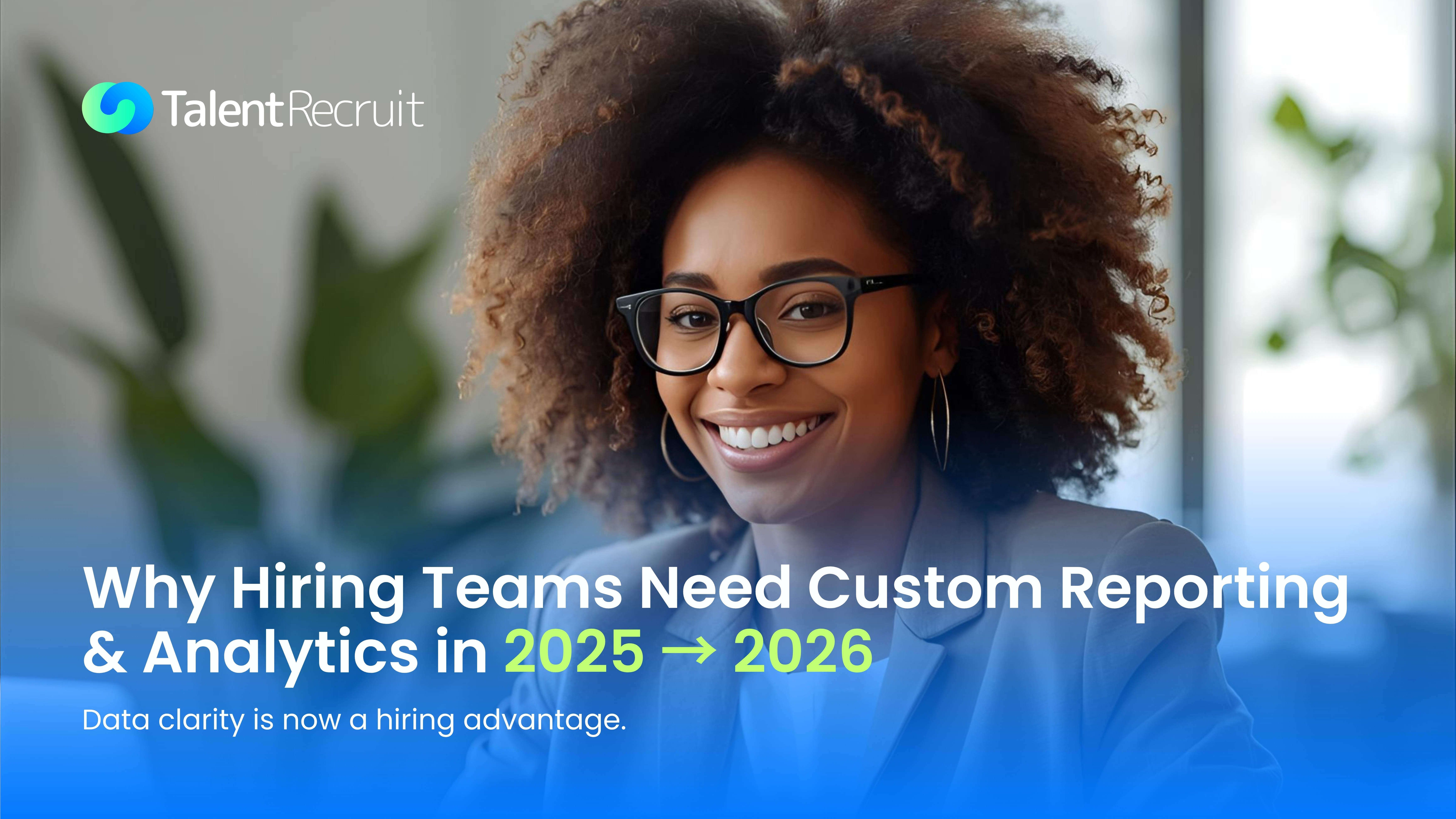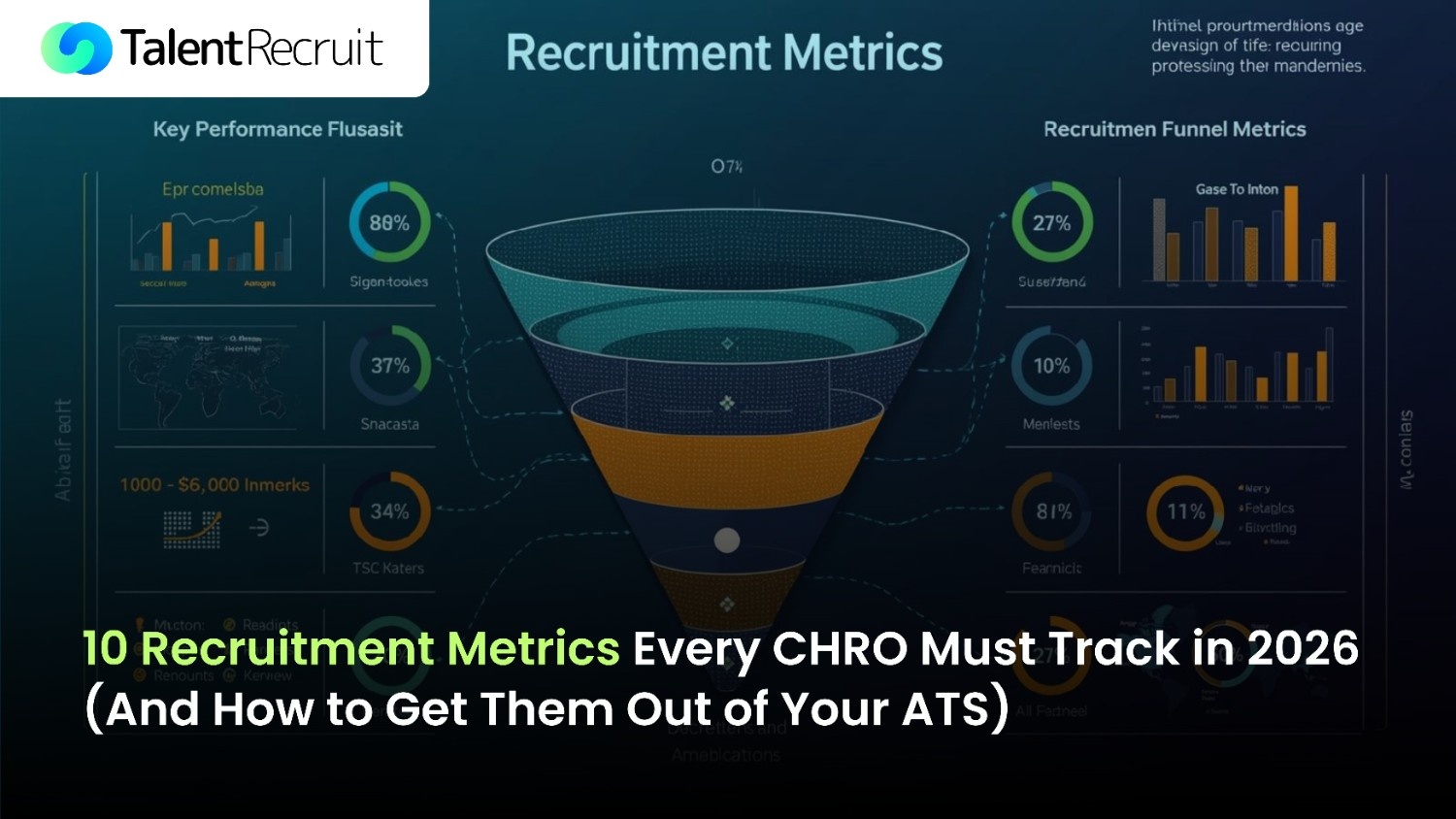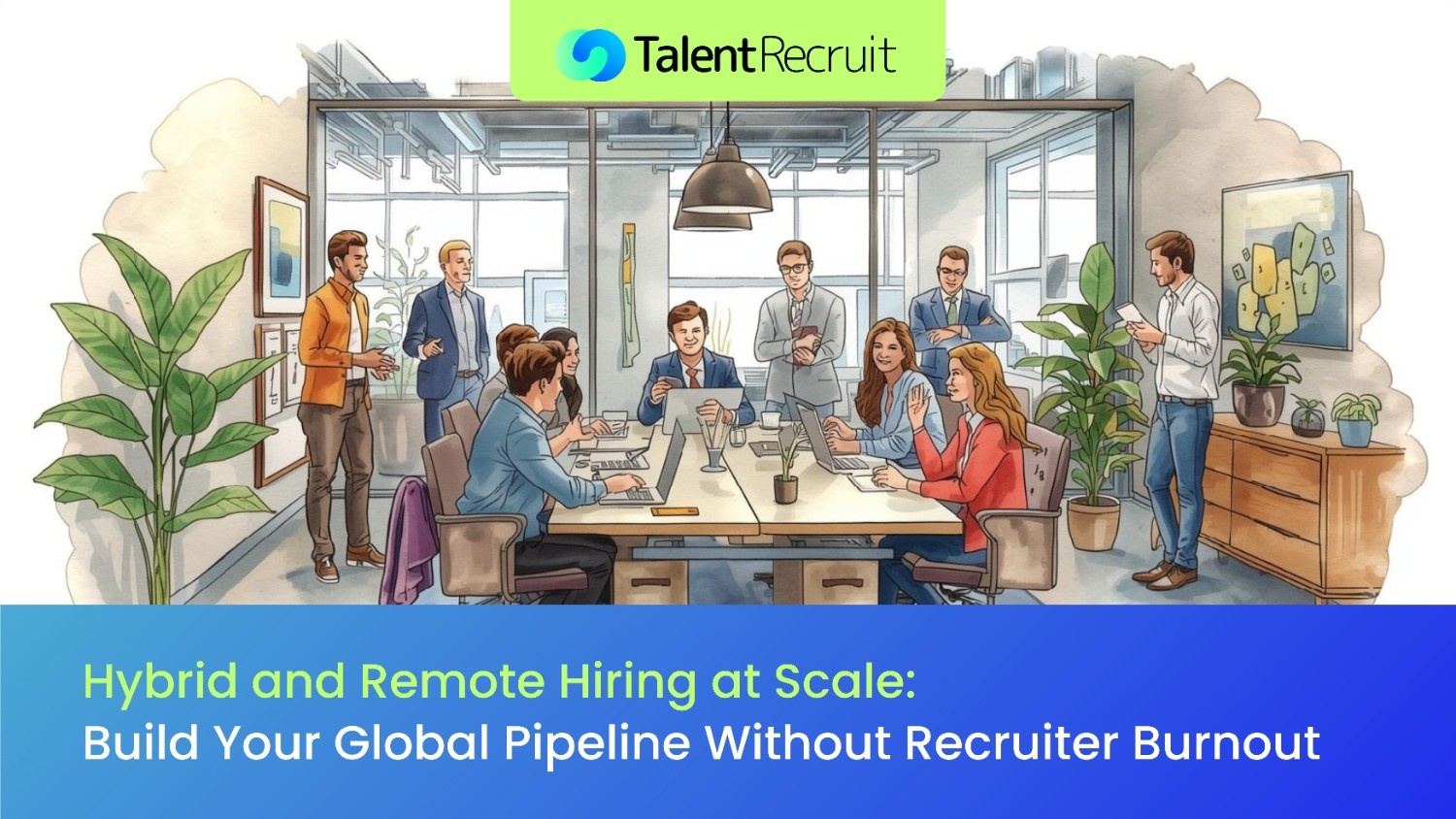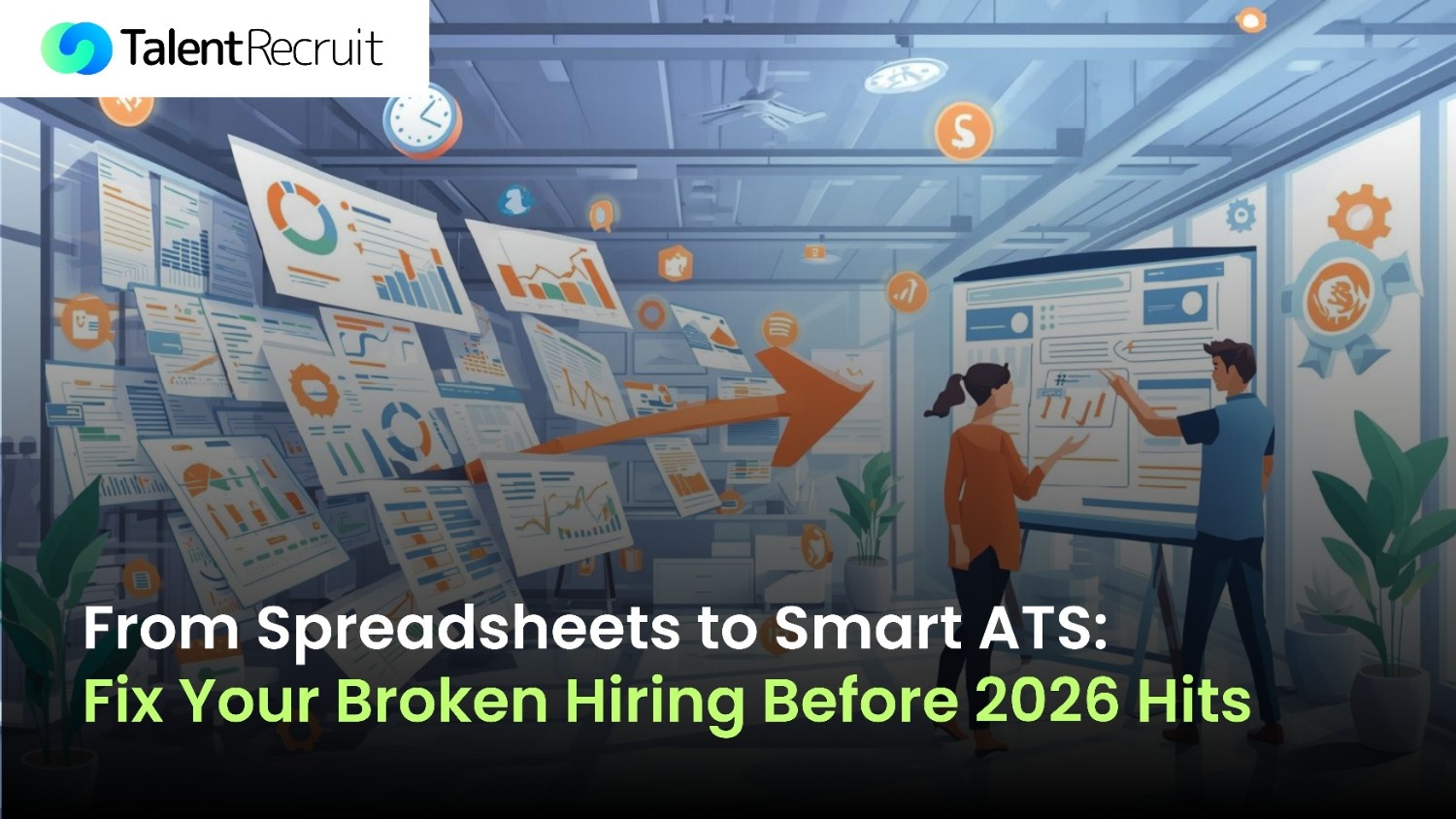Custom Report Builder & Hiring Analytics: The Complete Guide for 2026
Discover how a Custom Report Builder transforms recruitment analytics. Create real-time hiring reports, track KPIs, and drive data-backed decisions with TalentRecruit.

Introduction: Why Hiring Analytics Is Now the Biggest Competitive Advantage
As organisations prepare for 2026, one trend is dominating the HR technology space: data-driven hiring powered by custom reporting and advanced recruitment analytics.
Hiring teams today deal with massive volumes of data — from candidate pipelines to sourcing metrics, time-to-hire trends, interview feedback, recruiter workloads, offer-drop patterns and more.
The real challenge isn’t collecting hiring data.
It’s understanding it, customizing it, and using it to make faster and more accurate hiring decisions.
This is exactly where a Custom Report Builder for recruitment and advanced Hiring Analytics become essential.
What Is a Custom Report Builder in Recruitment?
A Custom Report Builder allows HR and Talent Acquisition teams to create personalised recruitment dashboards and reports based on their unique hiring workflows.
A powerful report builder helps teams track:
- Hiring funnel metrics
- Source-to-hire analytics
- Interview stage performance
- Recruiter productivity
- Offer-drop insights
- Ageing of positions
- Time-to-fill & time-to-hire benchmarks
And most importantly — customise reports based on business units, locations, job roles, or stakeholder needs.
Why Generic HR Reports No Longer Work (And Effect Hiring Performance)
Every organisation hires differently — different approval chains, different workflows, different KPIs.
Generic reporting dashboards fail because they cannot adapt to organisational complexity.
Key reasons generic HR reports fail:
- They don’t match internal hiring workflows
- They ignore role-based and unit-based hiring differences
- They restrict metric customisation
- They are NOT built for fast decision-making
- They do not reflect real recruiter performance or bottlenecks
This is why search queries like “best hiring analytics tool”, “custom recruitment reports”, and “HR reporting system” have surged in 2025.
Manual Recruitment Reporting: The Hidden Cost for TA Teams
Recruiters still spend hours every week manually:
- Exporting spreadsheets
- Cleaning hiring data
- Preparing MIS reports
- Creating monthly recruitment summaries
- Merging data from multiple tools
Manual reporting increases:
❌ Turnaround time
❌ Errors in data
❌ Delays in decision-making
❌ Recruiter burnout
In 2026, teams can no longer operate with these inefficiencies.
Benefits of Real-Time Hiring Analytics for HR Teams
Real-time Recruitment Analytics brings visibility, control, and predictability into the hiring process.
1. Detect Hiring Bottlenecks Instantly
Identify delays in:
- Screening
- Interviews
- Assessments
- Manager feedback
- Offer approvals
2. Improve Source-to-Hire Performance
Understand which channels deliver:
- Highest-quality candidates
- Fastest conversions
- Lowest acquisition cost
3. Reduce Offer Drops With Data
Analyse:
- Offer acceptance rates
- Pattern of drop reasons
- Timeline delays that trigger candidate withdrawal
4. Optimise Recruiter Workload
See workload distribution and hiring efficiency across each recruiter.
5. Predict Hiring Needs for 2026
Use historical trends to plan:
- Headcount budgets
- Hiring peaks & seasonality
- Campus recruitment cycles
- Role-based difficulty scores
How Custom Reporting Improves Recruitment KPIs
A strong custom reporting system directly boosts critical hiring metrics:
✔ Time-to-Hire Reduction
Faster bottleneck detection = faster hiring.
✔ Higher Candidate Experience Scores
Timely communication and quicker decisions.
✔ Improved Offer Acceptance Rate
Analytics reveal drop-off patterns.
✔ Better Hiring Velocity
Workflows become structured and predictable.
✔ Higher Recruiter Productivity
Less time in spreadsheets = more time with candidates.
Custom Report Builder: Must-Have Features for 2026
Look for:
- Drag-and-drop report creation
- Real-time dashboards
- Custom filter combinations
- Export in multiple formats
- Role-based access & sharing
- Funnel & pipeline visualization
- Source performance analytics
- Recruiter productivity reports
- Ageing & SLA tracking
- BU/Region-wise comparative analytics
Why a Unified “Single Source of Truth” Matters
Recruitment data is often scattered across:
- Job portals
- Emails
- Spreadsheets
- Assessment tools
- Interview calendars
- HRMS or ATS
A single source of truth ensures that every stakeholder — HR, TA, hiring managers, leadership — always refers to the same accurate data.
This avoids confusion, misalignment, and conflicting reports.
Data-Driven Hiring: The Future of Recruitment in 2026
By 2026, HR teams that are not leveraging analytics will fall behind.
The future is:
- Predictive hiring analytics
- AI-driven insights
- Custom recruitment dashboards
- Data-led decision-making
- Proactive talent management
Organisations that adopt analytics now will:
✔ Hire faster
✔ Reduce costs
✔ Improve talent quality
✔ Strengthen forecasting
✔ Build strategic workforce plans
Final Takeaway:
To win in 2026, hiring teams need more than data — they need clarity.
Custom Report Builders and advanced Hiring Analytics enable HR teams to:
🔥 Predict hiring outcomes
🔥 Identify bottlenecks early
🔥 Improve recruiter performance
🔥 Maximise sourcing ROI
🔥 Make smarter, faster decisions
🔥 Build a data-driven hiring culture
The companies that embrace analytics today will be the ones leading the talent market tomorrow.

Alok Nidhi Gupta has built this high tech company from scratch as Co-creator of the organization and lead the organization that filed patents in Smart Metering fields. He has been instrumental in the entire design & development of TalentRecruit’s software offerings, it is under his leadership that recruiters across industries have come to rely on TalentRecruit’s robust solutions.





.png)





